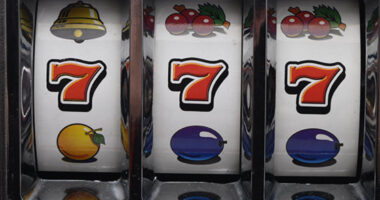In the vibrant realm of casino gaming, the allure of chance draws millions into a world where luck reigns supreme and strategy often takes a back seat. Yet, beneath the glitzy surface of flashing lights and spinning reels lies a fundamental element that governs every game: probability.
This often-overlooked mathematical foundation not only shapes the way games are designed but also influences players experiences in profound ways. From the intricate calculations that dictate payout structures to the odds that create thrilling moments of near-miss and triumph, probability serves as the silent architect of excitement within the casino.
In this exploration, well unravel the three pivotal roles of probability in casino game design, shedding light on how it harmonizes ingenuity with risk, ultimately crafting the games that captivate our imaginations and challenge our fortunes.
Game Mechanics and Structure
Game mechanics and structure in casino game design are intricately woven with the threads of probability, providing both challenge and excitement for players. Each game, whether it’s a spin of the roulette wheel or a hand of blackjack, is built upon a foundation of mathematical principles that dictate outcomes and player strategies.
For instance, consider slot machines: their complex algorithms determine not just the likelihood of hitting a jackpot but also when those moments of thrill will occur, creating a cycle of anticipation and reward. The pushing and pulling of odds shapes the gaming experience—from the tension of a near-miss that keeps players engaged to the strategies employed in table games, where calculating probability can tip the balance between victory and loss.
Ultimately, understanding these mechanics transforms a simple game into a riveting exploration of chance, risk, and decision-making, making each play a unique journey into the unknown.
Player Psychology and Engagement
Player psychology plays a pivotal role in casino game design, influencing everything from the structure of games to the use of probability. Understanding the emotional triggers that drive players—anticipation, excitement, and even the thrill of risk—can help designers craft experiences that keep players engaged.
For instance, when a game incorporates elements of chance, such as bonus rounds or progressive jackpots, it not only heightens the suspense but also activates the brain’s reward system, encouraging players to take calculated risks. Furthermore, the illusion of control—where players feel they can influence outcomes, even within the confines of probability—adds a layer of psychological engagement.
As players navigate through varied experiences, ranging from nail-biting moments to sudden wins, the interplay between fate and skill deepens their investment in the gameplay, engendering a sense of loyalty and prolonged interaction with the game. This intricate dance between chance, choice, and emotional response is what ultimately shapes a players journey in the vibrant world of casinos.
Game Fairness and Regulation
Game fairness and regulation are cornerstones of the casino industry, shaping the player experience and ensuring trust. At the heart of this framework lies the concept of probability, intricately woven into every aspect of game design.
Regulators impose strict standards on how probabilities are calculated and presented, safeguarding against deceptive practices that could erode player confidence. Each game, from the spinning reels of a slot machine to the strategic table of poker, operates under a predetermined mathematical structure that dictates outcomes and payouts.
This transparent framework not only protects players but also fosters a competitive landscape where operators must earn their reputation through fairness. The delicate balance between chance and design invites players into a world where luck reigns supreme, yet the rules guide every twist of fate and every roll of the dice, ultimately creating an ecosystem that thrives on integrity and excitement.
Conclusion
In conclusion, the role of probability in casino game design is fundamental to creating engaging and balanced gaming experiences. By utilizing mathematical principles, game designers can craft games that not only entertain players but also ensure a fair house edge, promoting long-term financial sustainability for casinos.
Understanding probability helps in developing strategies for player engagement, risk management, and game profitability. Furthermore, resources like https://spy-casino.com/ offer valuable insights into various casino games, deepening players’ appreciation of the intricate relationship between luck and design. Ultimately, a firm grasp of probability not only enhances game design but also enriches the overall gaming experience for players, ensuring that every roll of the dice or spin of the wheel is both thrilling and relevant.







